La Maison has fascinated me for a long time. It's both deeply rooted in tradition yet at the same time modern and culturally relevant. But the really surprising part is seeing how little the brand actually produced to get were they are right now. Cartier only made a handful of pieces in their early days while being a style power-house already. How were they able to leave their mark in history? Quality over Quantity?
July 12, 2022
The Panthers First steps - Early Cartier

Marcus Siems @siemswatches
Collector, Author, Data Analyst
Why Cartier? La Maison has fascinated me for a long time. It's both deeply rooted in tradition yet at the same time as modern and culturally relevant now as it ever was. The Roman numerals, the piano-style minute-track, the only-almost square Tank shape, these are characteristics edged into horological history by this one brand. But the really surprising part is seeing how little (in volume) the brand actually produced to get were they are right now. Cartier only made a handful of pieces in their early days. How were they able to leave their mark in history?
The Cartier brand is as deeply rooted in our modern horological world as any other manufacturer. As now part of the Richemont group "La Maison" sold around 600,000 watches in 2021[1]. This added up to second most revenue of any watch manufacturer, behind only Rolex.
 A close up of all the things Cartier: Roman numerals, piano-style minute track, sword hands and a daring case design. Photo @goldammer.me
A close up of all the things Cartier: Roman numerals, piano-style minute track, sword hands and a daring case design. Photo @goldammer.me
Those are very impressive numbers for the French jewelry empire. It's probably the up and coming watch manufacturer of our times. But all this makes us easily forget that just a mere 50 years ago a genuine Cartier made watch was an absolute rarity[2]. Here, we are looking at the production numbers between 1919 to 1969 and yes, there were really only a handful made.
 Distribution of early year production numbers of Cartier watches (no white labels) from 1919 to 1969[2].
Distribution of early year production numbers of Cartier watches (no white labels) from 1919 to 1969[2].
Even though Cartier produced the very first wristwatch for men[3] their production did not exceed 1000 pieces a year until the early 1960s. Overall, it took Cartier about 10 years to produce their first 5,000 watches but another 20 before the brand hit the 10,000 mark in 1949. Well, in the meantime the great depression and the second world war happened both dramatically tanking - pun intended - the production numbers.
Before the production really accelerates in the 1960s Cartier watches are really rare birds. Interestingly, during the post-war era the numbers are not increasing for quite some time. Around the same time that La Maison is re-branding Vacheron and Jaeger-LeCoultre watches - among others - particularly on the US market easing the need to produce their own pieces[4].
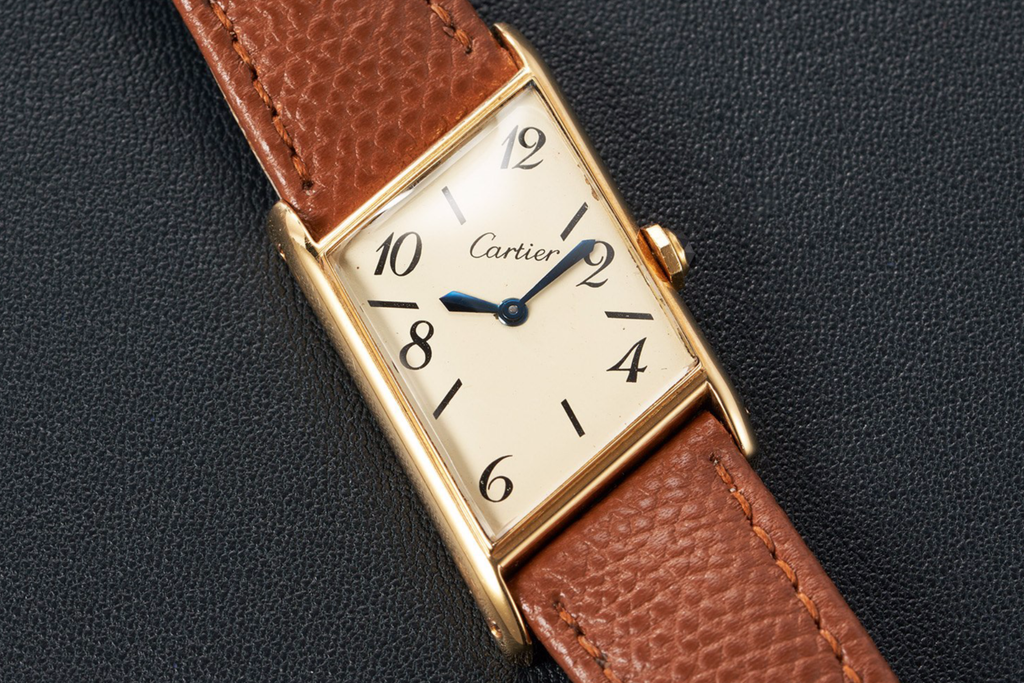 1960s wonder auctioned off at Phillips Geneva (lot 252) this Spring - an immaculate Tank Paralélogramme made from yellow gold and collector dreams. Sold for 252,000CHF (including premium).
1960s wonder auctioned off at Phillips Geneva (lot 252) this Spring - an immaculate Tank Paralélogramme made from yellow gold and collector dreams. Sold for 252,000CHF (including premium).
So if these early Cartier pieces are so utterly rare, you should think that you'd have to pay a premium to actually acquire such early examples. So let's have a closer look at how the brand's earlier examples performed at auction this spring. All in all, we saw 9 watches hitting the market from our era of interest, 7 of those selling.
 Distribution of hammer-prices realized for early (1919-1969) and later (1970-2022) Cartier watches at Spring 2022 auctions. White dashed lines indicate mean (upper) and median (lower) of the distribution.
Distribution of hammer-prices realized for early (1919-1969) and later (1970-2022) Cartier watches at Spring 2022 auctions. White dashed lines indicate mean (upper) and median (lower) of the distribution.
Surprisingly, I can't find any indication that those pieces sell for higher prices than later examples*. As such collector-grade Cartier might rather be defined by the model and not notably by age. By now we probably all know about the Cartier Crash and how it reaches for higher and higher price points. Not to mention the record breaking example of a "London Crash" that hammered for over 1,500,000$ at LoupeThis this May[5].
 A wristshot of the new record holder - the most expensive Cartier Crash sold at auction. This particular 1967 example (the earliest London Crash surfaced) sold for over 1,500,000$, yet it is also one out of many impressive "Crash" results over the last two years or so.
A wristshot of the new record holder - the most expensive Cartier Crash sold at auction. This particular 1967 example (the earliest London Crash surfaced) sold for over 1,500,000$, yet it is also one out of many impressive "Crash" results over the last two years or so.
We'll have to find out whether the run for certain models extents or if we might see more classic Cartier designs becoming collectible as well? Ultimately, it's up to you what a 1928 Cartier Tank Cintrée with provenance is really worth - one out of less than 100 Tank watches (overall!) produced that year. Slightly suggestive he asks: more or less than a neo-vintage limited edition (150) Tank a Guichets from the 1990s? Of course value is always subjective but you'll simply always find me on the vintage side of the argument.
 As simple as this Tank Cintree might look like, I'd take it over most complicated modern timepieces. This fine specimen sold at Christie's Geneva auction this Spring (lot 132) sold for 88,200CHF (including premium). Sounds like a lot but maybe you also wanna allow for the provenance? Gifted from the MGM executives to Harry Portman on opening of "The Empire" theatre London 1928.
As simple as this Tank Cintree might look like, I'd take it over most complicated modern timepieces. This fine specimen sold at Christie's Geneva auction this Spring (lot 132) sold for 88,200CHF (including premium). Sounds like a lot but maybe you also wanna allow for the provenance? Gifted from the MGM executives to Harry Portman on opening of "The Empire" theatre London 1928.
In sum, it's stunning to see that Cartier gained fame and credibility all over the world, all throughout their history without making many watches. Up until the 1960s Cartier must have been an ivory tower, a brand very recognizable yet rarely seen in real life. A bit like the Panthere itself Cartier left rare but unique footsteps on the horological world. A mythical creature but the allure was real, always has been, and probably will be for quite some time.
* Beware: The amount of watches this conclusion is drawn from is too low to make any really fundamental point. It's merely a trend that can be studied further. I'm not trying to consult on buying/selling of watches, it's purely entertainment (I hope).
References
[1] 2021 Watch Industry Results; Vittorino Loreto, Italian Watch Spotter;
https://italianwatchspotter.com/2021-watch-industry-results/
[2] The Cartier Codex; Franco Cologni & Cemre Paris;
[3] Santos - The Birth of Men's Wristwatch; Felix Goldammer, Goldammer Vintage Watches;
[4] LeCoultre - Cartier, another part of the Jaeger-LeCoultre history; The Blomman Watch Report;
[5] London Crash 1967 | Auctions; Loupe This;
https://loupethis.com/auctions/cartier-london-crash-1967
All rights on text and graphics reserved to the Author.




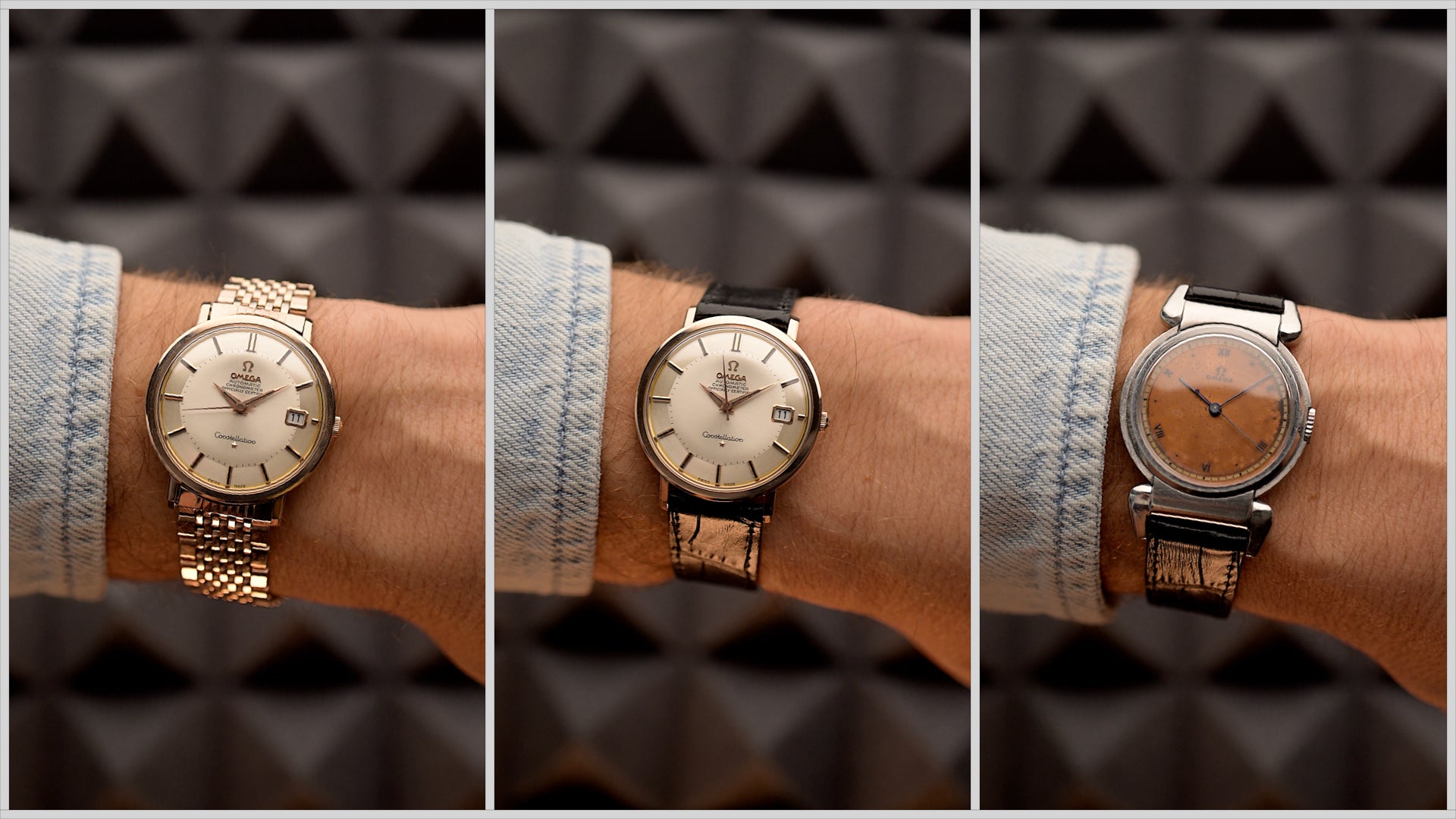
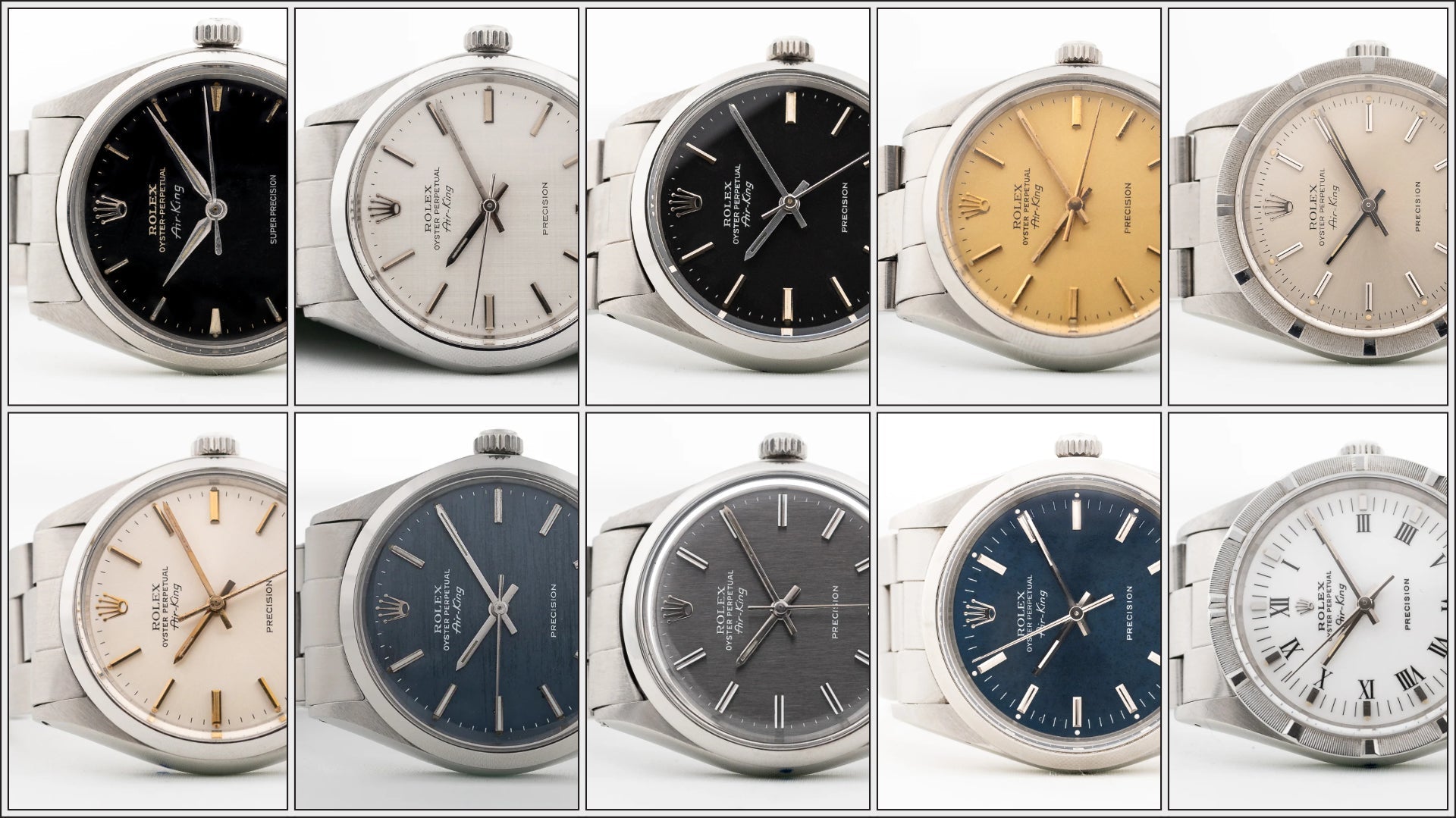
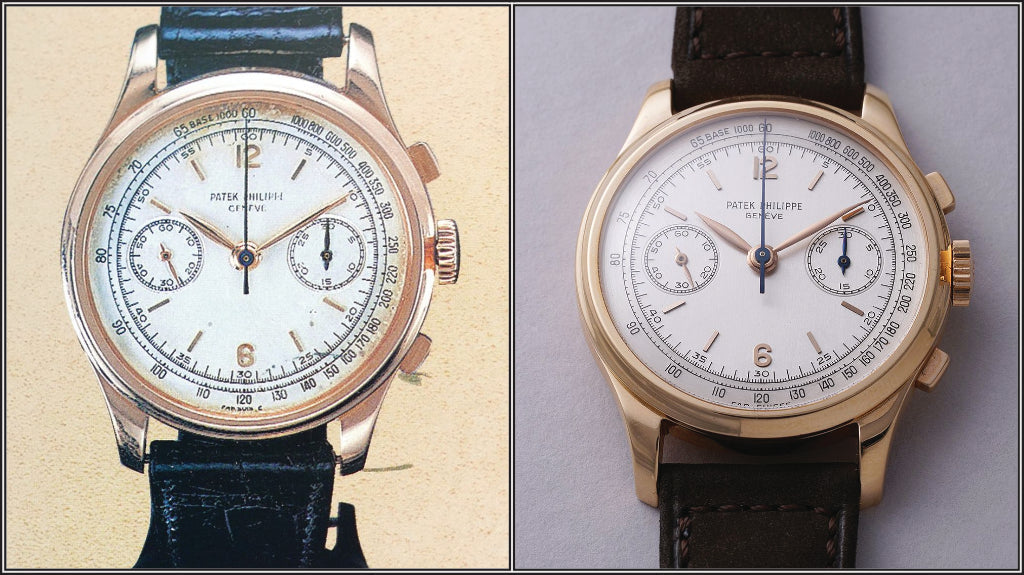
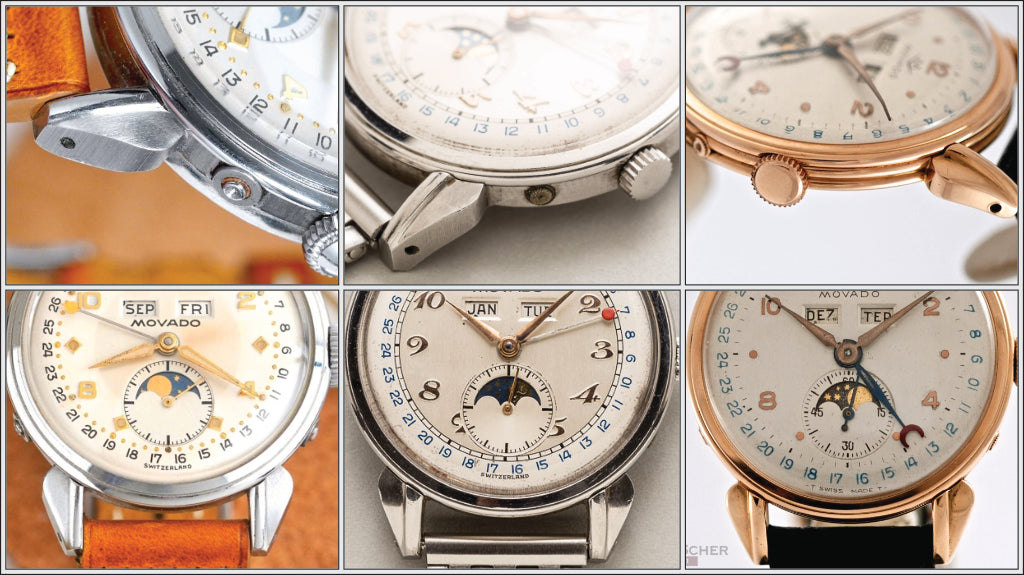
















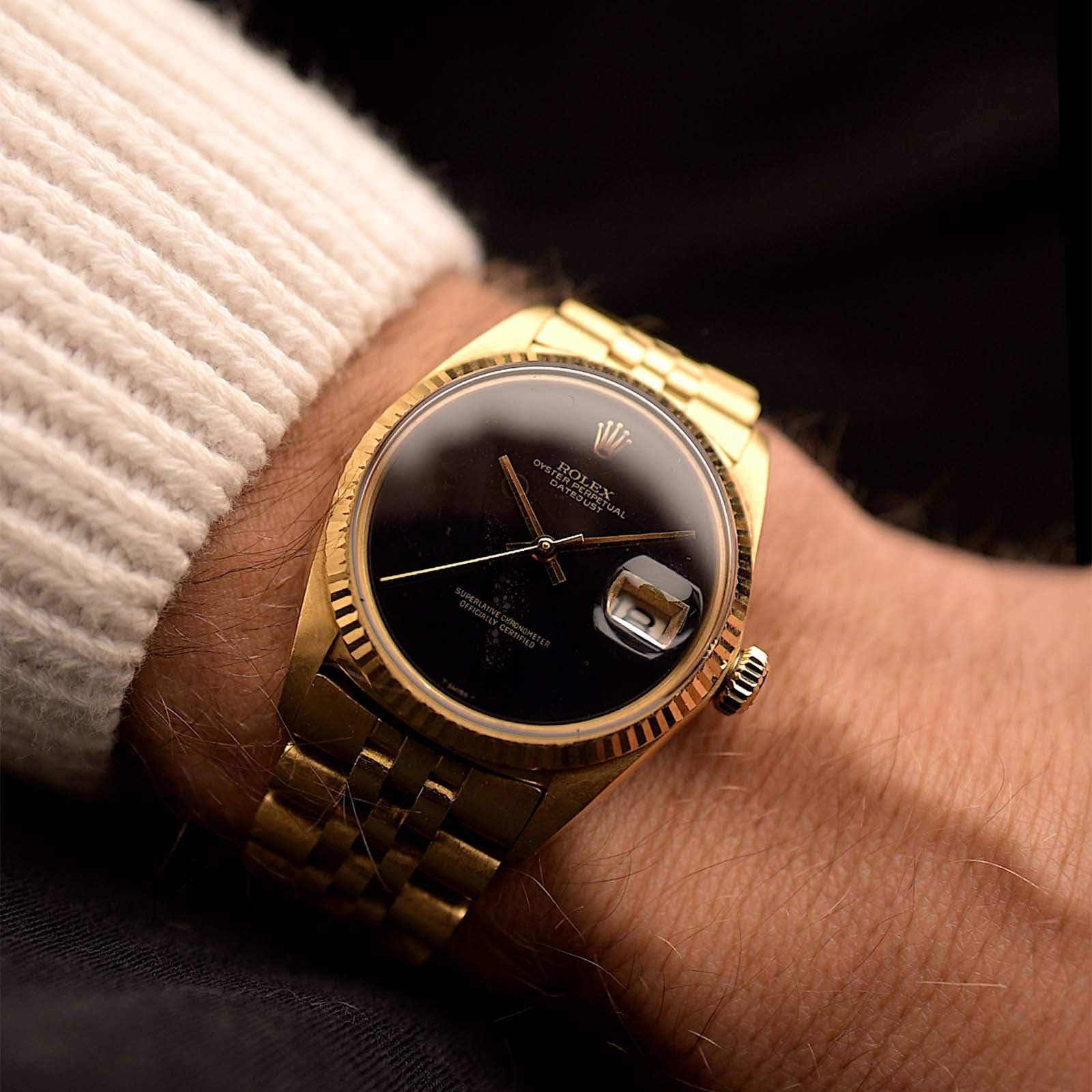

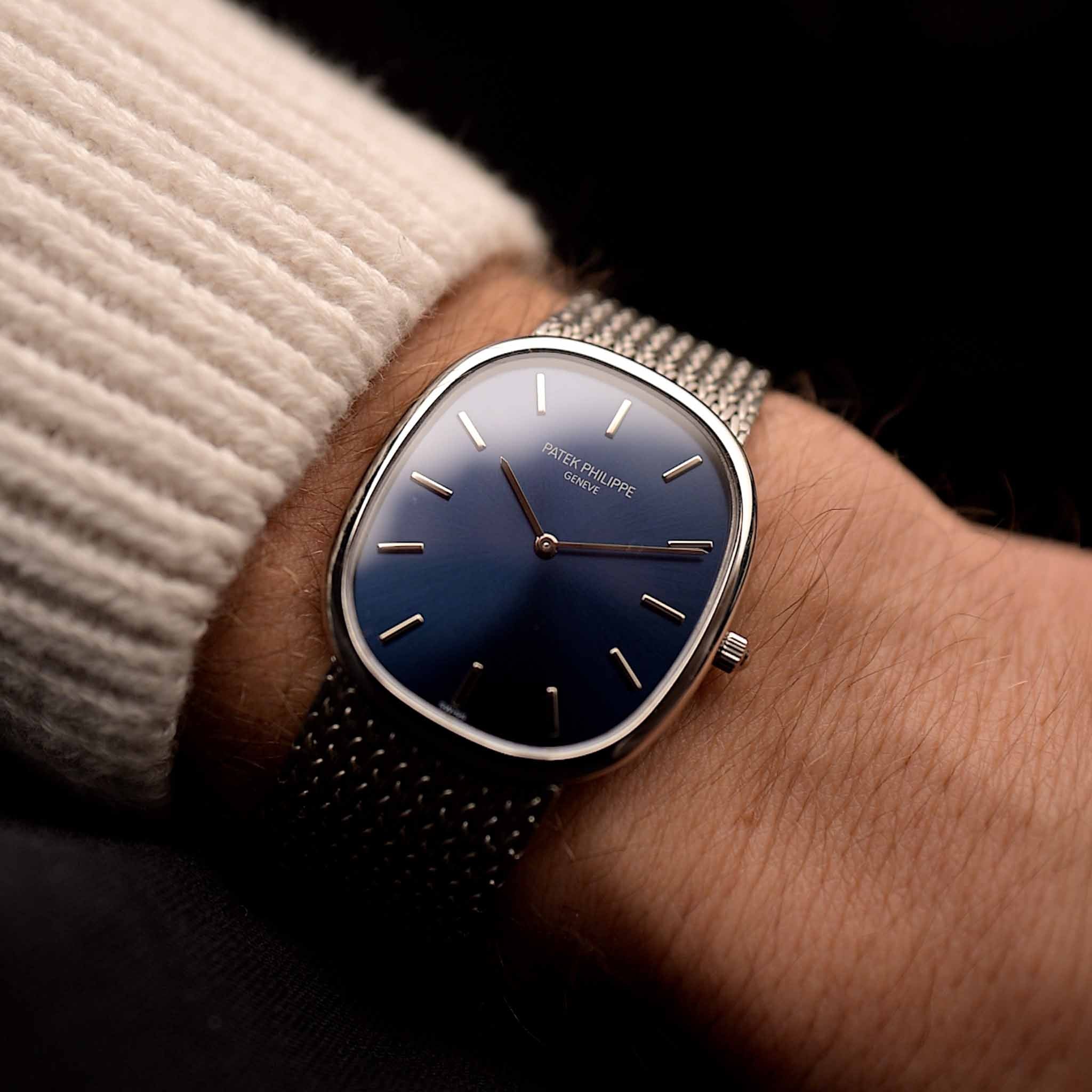
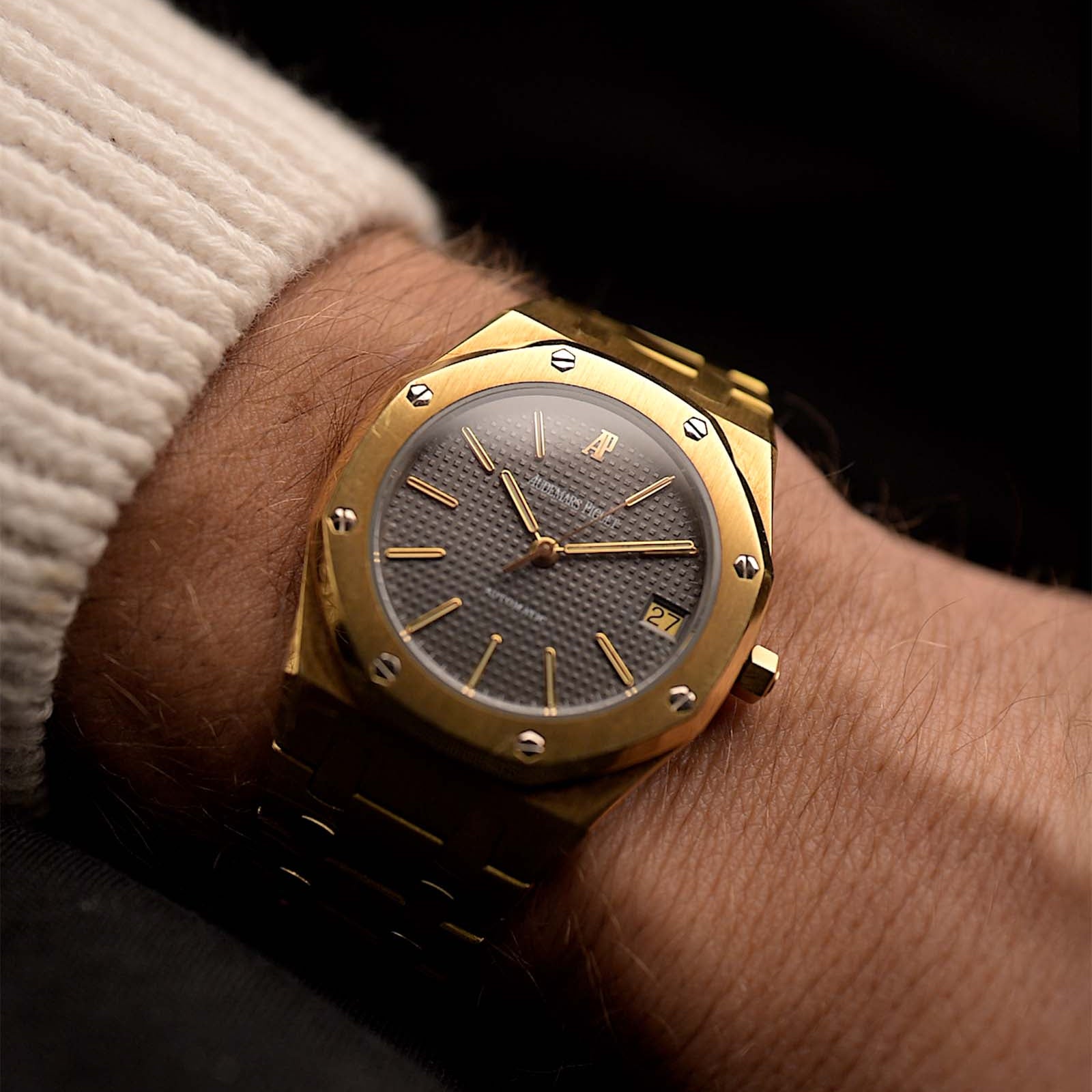
1 comment
Wonderful and well researched article! I remember having the 1928 Cintrée on my wrist during the Christie’s lotviewing and a watch has never felt so good.
Raf
Leave a comment